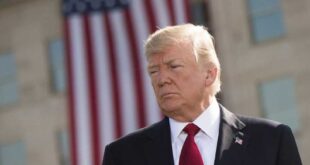Politics and society are being impacted by social media more and more. Social media has been essential in organizing social movements, amplifying voices, and influencingpolitical discourse, from the Arab Spring revolutions to the Black Lives Matter movement.
Social media, at its heart, signifies a profound change in how we communicate and consume information. Unlike traditional media, social media enables real-time involvement and interaction, creating a platform for various voices and viewpoints to be heard.
However, the growth of social media has also introduced new hazards and concerns. While algorithms and echo chambers have reinforced preexisting biases and impeded access to different points of view, political actors have utilized social media to propagate propaganda, disinformation, and hate speech.
In order to comprehend how social media affects political discourse, we must look at how it has affected the way we receive and disseminate information, how it influences public opinion and political ideologies, and the potential and difficulties it poses for the future of democracy.
This article examines the role of social media in influencing political discourse in the digital era, drawing on concepts from global views, communication, and mass media theory. We examine the influence of social media on political ideas, how political actors utilize social media to shape the public agenda, and the problems and opportunities posed by social media for the future of democracy through a survey of pertinent scholarly articles, news media, and other sources.
The Influence of Social Media on Political Perspectives
Social media’s emergence has altered how individuals consume political news and information, with far-reaching ramifications for political participation and engagement. Facebook, Twitter, and Instagram have become important sources of information and news for many individuals, impacting their political opinions and beliefs.
One way social media has altered political ideas is by allowing for real-time discussion and involvement. Users can instantly share and consume political content on social media, breaking down conventional barriers to political debate and creating a more participatory environment. Individuals and groups who were previously marginalized in traditional political arenas have been empowered, allowing them to speak their opinions and interact with others who share their perspectives.
However, social media has also aided in disseminating misinformation and propaganda, which can harm democracy. Algorithms that promote interaction and virality can reinforce existing prejudices while limiting exposure to various points of view, resulting in echo chambers that reinforce existing ideas while limiting exposure to other perspectives. This can polarize political discourse even further and contribute to the disintegration of democratic norms and institutions.
Despite these obstacles, social media offers new political engagement and participation avenues. Social media, for example, has been used to mobilize social movements and draw attention to critical social and political concerns. It has also provided new places for civic participation and citizen journalism, allowing people to engage in politics in new and important ways.
Theoretical approaches like the networked public sphere and digital citizenship can help us understand how social media affects political ideas and involvement. The networked public sphere refers to the digital spaces where people engage in political debate and share information. Digital citizenship, on the other hand, emphasizes the role of individuals in changing the online environment through their participation and interaction. We can better comprehend the intricate interplay between social media and political ideas in the digital age if we consider these theoretical approaches with empirical studies.
Social Media as a Tool for Shaping the Public Agenda
As we see in the preceding topic, social media significantly impacts political ideas and ideologies. Social media is increasingly used to set the public agenda and affect policy results, as well as influence individual ideas and attitudes.
Political advertising is one way that social media influences the public agenda. Political actors and interest groups can utilize social media platforms to target specific audiences with tailored messaging, maximizing the impact of their campaigns through sophisticated data analytics and targeting strategies. As a result, the public sphere may become fragmented, with different groups receiving different messages and information.
Social media can also promote urgency and rally support for particular topics or causes. Hashtag campaigns like #MeToo and #BlackLivesMatter have drawn attention to critical social and political concerns, garnering widespread support and putting pressure on authorities to act.
However, using social media to shape the public agenda raises questions about the impact of money and influence on democratic processes. Political actors with greater resources and data access can affect public opinion and undermine democratic norms and institutions through social media.
Agenda-setting and framing theories can assist us in understanding how social media shapes the public agenda. The power of the media to affect matters deemed vital by the public is referred to as agenda-setting. Framing, however, refers to how issues are presented and interpreted. Social media may reinforce and generate new frames, influencing how the public views and understands political issues.
While social media can be an effective tool for making public policy and influencing policy results, the impact on democratic processes and institutions must be carefully studied and monitored. We can better grasp the impact of social media on democracy by studying how it shapes the public agenda and working to ensure that it is used in ways that encourage openness, accountability, and democratic involvement.
The Power and Potential of Social Media in the Digital Age
We analyzed the impact of social media on political ideas and the public agenda, emphasizing both the potential and difficulties that the digital age presents. We’ve seen how social media has profoundly altered how people consume and participate in political news and information, opening up new avenues for civic engagement and political dialogue.
At the same time, social media poses several challenges to democratic processes and institutions, such as the spread of disinformation and propaganda, the fragmentation of the public sphere, and the potential for manipulation and influence by political actors with greater resources and data access.
To solve these issues, it is critical to understand social media’s power and potential as a vehicle for encouraging democratic involvement and engagement. This necessitates a commitment to transparency, accountability, and ethical social media activities and acknowledging the value of many viewpoints and opinions in setting the public agenda.
The networked public sphere, digital citizenship, agenda-setting, and framing are theoretical concepts that can help us better comprehend the complicated interplay between social media and democratic processes. We can acquire a more comprehensive understanding of the impact of social media on political society by evaluating these theoretical viewpoints with empirical research and case studies.
Finally, social media can profoundly impact political discourse and public agenda. We may fight to ensure that social media is utilized in ways that encourage democratic involvement, transparency, and accountability and so contribute to a more just and equitable society by understanding and addressing the problems and opportunities given by social media in the digital era.
 Geostrategic Media Political Commentary, Analysis, Security, Defense
Geostrategic Media Political Commentary, Analysis, Security, Defense





